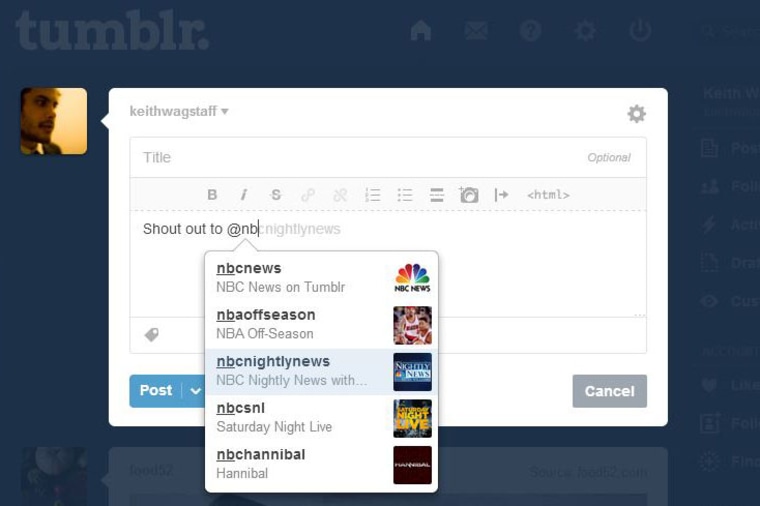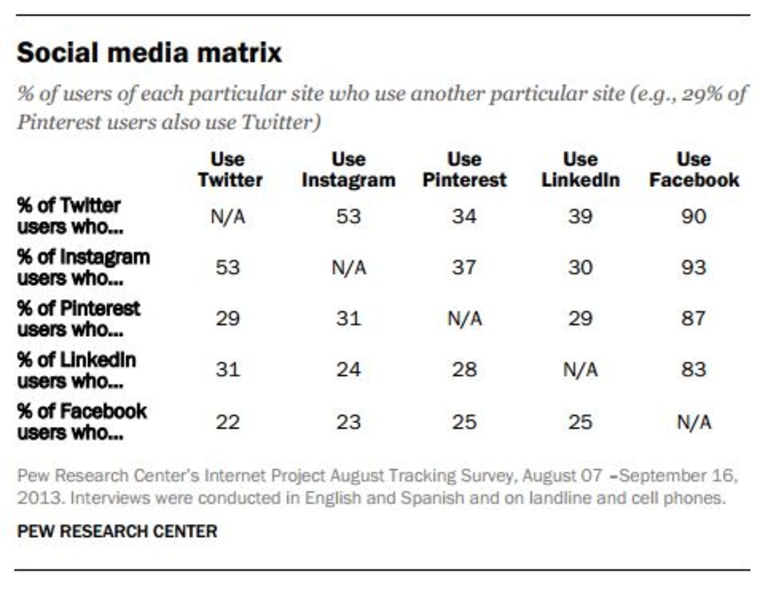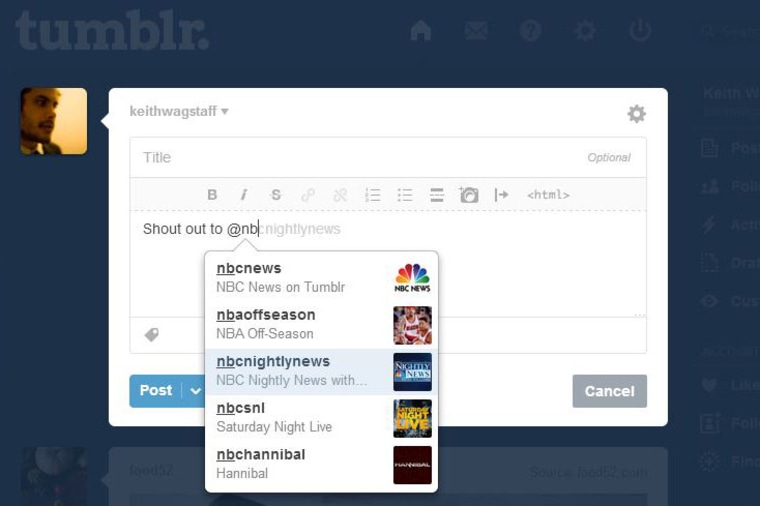
The more social media sites change, the more they look the same.
Take Tumblr. The popular blogging platform just introduced the ability to mention other users with the "@" symbol.
If that sounds familiar, it's because Twitter offered the feature when it launched in 2006. You can do the same thing on Instagram, which, by the way, is owned by Facebook. And yes, typing "@" into your Facebook status will allow you to mention your friends.
"People are used to using mentions on Twitter and Facebook," Jan Rezab, CEO and co-founder of social media analytics firm Socialbakers, told NBC News. "It only makes sense that Tumblr launches the exact same thing."
As a recent Pew Research Center poll showed, plenty of Twitter users also sign into Facebook and Instagram. Once people get used to a popular feature on one social network, Rezab said, they want to be able to use it across all of them.

This isn't limited to mentions. Hashtags and sponsored posts also spread from network to network.
Nothing brings competing social media networks together, however, like a rising star. Snapchat bucked the sharing trend in 2011 by focusing on letting users send private photos back and forth. While Snapchat won't divulge how many users it has, apparently it was impressive enough to warrant a $3 billion offer from Facebook. (Snapchat refused).
Once the young company started nipping at their heels, both Twitter and Instagram responded by offering their users features that seemed firmly Snapchat-esque.
In December, Twitter introduced the ability to send private photos via direct message, or "DM," a move that came too little, too late for Anthony Weiner. That same month, Instagram unveiled "Instagram Direct," which also lets users send personal snapshots and messages to each other.
A similar pheonomena happened when Foursquare became the next hot thing at South by Southwest in 2009, except that instead of making communications more private, companies lined up to broadcast your location.
Foursquare is an app that lets users "check in" at different locations, a function that was soon emulated by Facebook and Twitter. Both companies have since tweaked their initial geo-location products, but the ability to share where you took a Facebook photo or sent a tweet remains intact. Both Instagram and Google+ offer similar features.
In the end, the winner is probably the user, Rezab said. He compared the game of copycat to what happened between early mobile operating systems, resulting in the polished products we see today.
"Any kind of competition or feature upgrade is great for consumers," Rezab said. "A lot of these things are relatively easy to implement, and people just want them. If companies don't please the user, they could end up like some of the social networks we don't talk about anymore, like Friendster or Myspace."
Keith Wagstaff writes about technology for NBC News. He previously covered the tech beat for TIME's Techland and wrote about politics as a staff writer at TheWeek.com. You can follow him on Twitter at @kwagstaff and reach him by email at: Keith.Wagstaff@nbcuni.com
